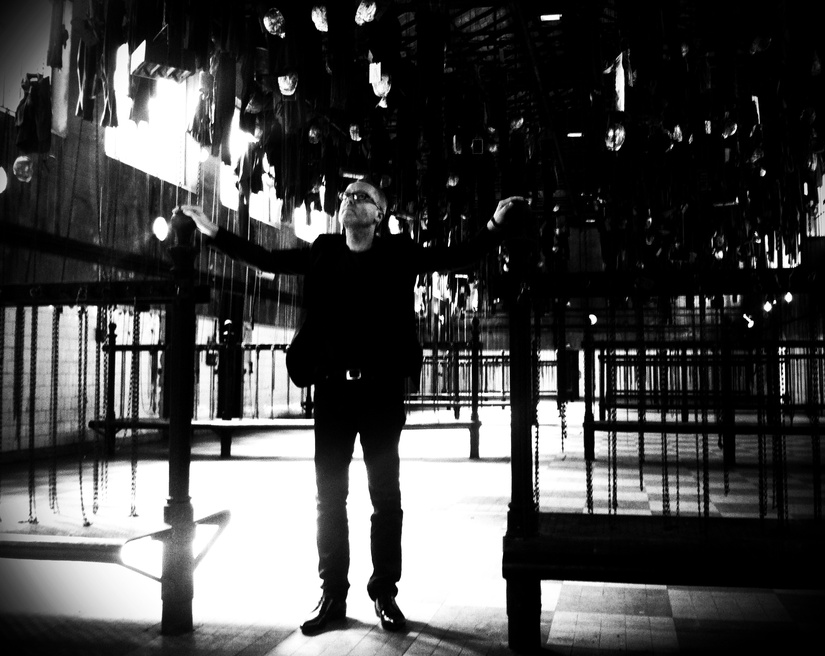CUT HANDS
• a project founded in 2007 heavily inspired by William Bennett's fascination for Haitian vaudou, deploying percussion in radical new ways, generating an intense sound unrivalled in its physical and emotional intensity
• in 2002, being inspired by Haitian vaudou musicians’ capacity to make intensely powerful music with almost no technology, William Bennett first employed djembes and doundouns on the classic Wriggle Like A Fucking Eel 12” by Whitehouse, in what was seen as a radical musical direction by many in the wider noise/industrial scene
• the name was derived from the song Cut Hands Has The Solution by his original Whitehouse project
• 200+ live performances, many at prestigious world venues and festivals in Japan, USA, South America, Australia, and all over Europe including most recently at London’s South Bank Centre as special guest of Grace Jones at Meltdown Festival
• the music of Cut Hands features in soundtracks to award-winning VBS docmentary films (also shown on CNN): Siberia: Krokodil Tears (2011); Inside Syria (2011); Mandingo (2010); Liberia (2009); Snoop Dogg documentary Reincarnated (2013); Lil Bub & Friendz (2013); Kings Of Cannabis (2013); also Julien Temple’s documentary Glastonbury in addition to other internationally-acclaimed films
ASMUS TIETCHENS
German experimental musician.
He began recording sound experiments in 1965 with electronic musical instruments, synthesizers and tape loops. In the 1970s he met producer Okko Bekker who has been credited as producer on Tietchens' releases ever since.
Although some of his better-known recordings from the early 80s are what he refers to as "electronic pseudo-pop", most of Tietchens' works are much more experimental in nature, drawing on influences as diverse as Industrial, Electro-Acoustic, Ambient, and Musique Concrète, moving toward more abstract sound collages.
The sleeves on his albums often quote philosopher Emil Cioran.
MICHAEL FISCHER
Michael Fischer is an Austrian musician, composer and instant composition conductor. He works on the immanence of language within sounds, their sculptural and dramatic evidence, on the tenor saxophone, the violin, on cd-player setting and conducted instant compositions, in improvised and experimental music. Since 1999 he connects the electro-acoustic phenomenon feedback with acoustic instrumentation by creating and playing the feedback saxophone. He also collaborations with literary writers, dance productions, performance, installation and video. Fischer also launched the Vienna Improvisers Orchestra in 2004.
Ak 25.-
19.30 doors
20.15 Asmus Tietchens
21.05 Michael Fischer
21.45 Cut Hands
